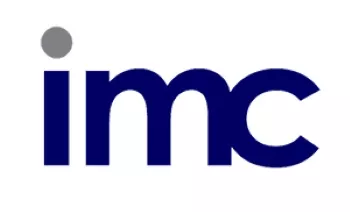- within Corporate/Commercial Law topic(s)
- in United States
- with readers working within the Law Firm industries
- within Corporate/Commercial Law, Technology and Wealth Management topic(s)
- with Senior Company Executives and HR
At a time when regulatory norms are becoming complex and businesses face heightened risks, organizations must revisit their approach to due diligence services in 2026. Global trade and investment are evolving fast. Consider evolving tax norms, ESG accountability, and data protection mandates. Businesses that fail to upgrade their due diligence infrastructure are exposed to risk and non-compliance. Eventually, they are susceptible to operational danger in an environment where the market is becoming increasingly transparent.
The Shift in Due Diligence Expectations
There was a time when due diligence involved a static checklist. It used to be a one-time exercise before an organization closed a deal.
However, due diligence services today involve an ongoing data-driven evaluation process. It evaluates the following aspects of an organization:
- Financial health
- Compliance status
- Cybersecurity resilience
- Operational strength
Global M&A trends reveal that inadequate due diligence continues to be one of the leading reasons leading to the failure of deals. It appears that success in cross-border ventures now depends on adopting a structured and intelligent due diligence strategy. This approach must seamlessly align with the regulatory demands of 2026.
Rising Complexity Across Borders
International operations have grown in complexity. Accordingly, the demand for due diligence services has also evolved. MNCs now, therefore, must address overlapping compliance frameworks, including:
- Anti-bribery regulations
- Anti-money laundering regulations
- Data privacy policies
- Sustainability disclosures
Again, ESG challenges are adding to the expectations. Investors and regulators today consider sustainability performance as an essential factor under due diligence. Therefore, businesses must verify the environmental practices and governance systems of their partners before entering into any agreement.
The Role of Technology in Modern Due Diligence
The process in which due diligence is conducted has largely been reshaped by digital transformation. With AI, analytics, and automation, insights into risk exposure are now more accurate. Using these tools, organizations can adopt a proactive stance to risk management instead of being reactive to circumstances. They are better poised to identify red flags before they escalate into financial or legal trouble.
Today, machine learning models are capable of analyzing thousands of documents to flag inconsistencies. They evaluate risk scores in real time. Automation also helps to reduce manual errors and accelerate the review process of complex datasets. With this evolution, businesses can integrate due diligence seamlessly into their decision-making cycle, which eventually improves efficiency and transparency.
Expanding the Scope of Due Diligence Services
The most effective due diligence services go beyond financial assessments. Experienced professionals cover four key pillars essential for global businesses to succeed.
- Financial and operational performance, which includes verifying audited statements, internal controls, and business sustainability
- Legal and regulatory standing that ensures there are no pending litigations, contract violations, or sanctions issues
- Cybersecurity and data compliance to assess the integrity and breach history of the system to maintain compliance with international data protection standards
- ESG and reputation checks to evaluate the social responsibility, ethical governance, and environmental responsibility of a company
This comprehensive scope of due diligence ensures that companies can identify potential risks. They manage these vulnerabilities actively, which can lead to better outcomes of deals and provide long-term stability for businesses.
Globalization and Continuous Due Diligence
Businesses operating across the border face additional layers of scrutiny from regulators and investors. In this context, companies need a comprehensive due diligence compliance guide for international businesses that explains how to monitor the environment continuously instead of running a one-time audit. Updating due diligence records regularly and re-assessing risk profiles helps businesses remain compliant with evolving laws while boosting the confidence of investors.
Consistent due diligence also aligns with international anti-corruption and transparency frameworks. It demonstrates the commitment of an organization to ethical and compliant operations. For sectors like finance, technology, and energy, where regulatory frameworks shift rapidly, this ongoing vigilance is especially critical.
Best Due Diligence Practices for 2026 and Beyond
Here are some best practices for due diligence services that businesses must consider in 2026.
Standardize processes
Businesses must adopt uniform templates across jurisdictions so that they maintain consistency while evaluating risk.
Use analytics
Companies need to work on data-driven insights to prioritize areas involving high risk and speed up their decision-making process.
Centralize compliance data
Organizations also need to maintain a single repository for all due diligence reports, certifications, and documents.
Monitor in real time
Use tools that provide alerts on regulatory changes or counterpart risks.
When organizations implement these practices, they can improve the efficiency of compliance. This approach transforms due diligence into a strategic tool for growth.
Professional Due Diligence Services to Build a Strong Compliance Framework
Global standards continue to tighten in 2026. Companies that deploy smarter models for due diligence will gain a competitive edge. This ensures that every partnership, acquisition, and transaction stands on solid ground.
The IMC Group offers comprehensive due diligence solutions to help businesses meet global standards. Working with the professional team, organizations can strengthen their compliance framework and safeguard their international operations in 2026 and beyond.
Poornima J specializes in global employment, cross-border compliance, and business risk evaluation. At IMC Group, she works closely with multinational clients to build strong due diligence structures, reinforce governance, and support responsible international expansion. Her work spans regulatory reviews, compliance monitoring, and risk assessment across fast-changing global markets. Connect with her to understand how disciplined due diligence can reduce exposure and strengthen business decisions in 2026 and beyond.
The content of this article is intended to provide a general guide to the subject matter. Specialist advice should be sought about your specific circumstances.


